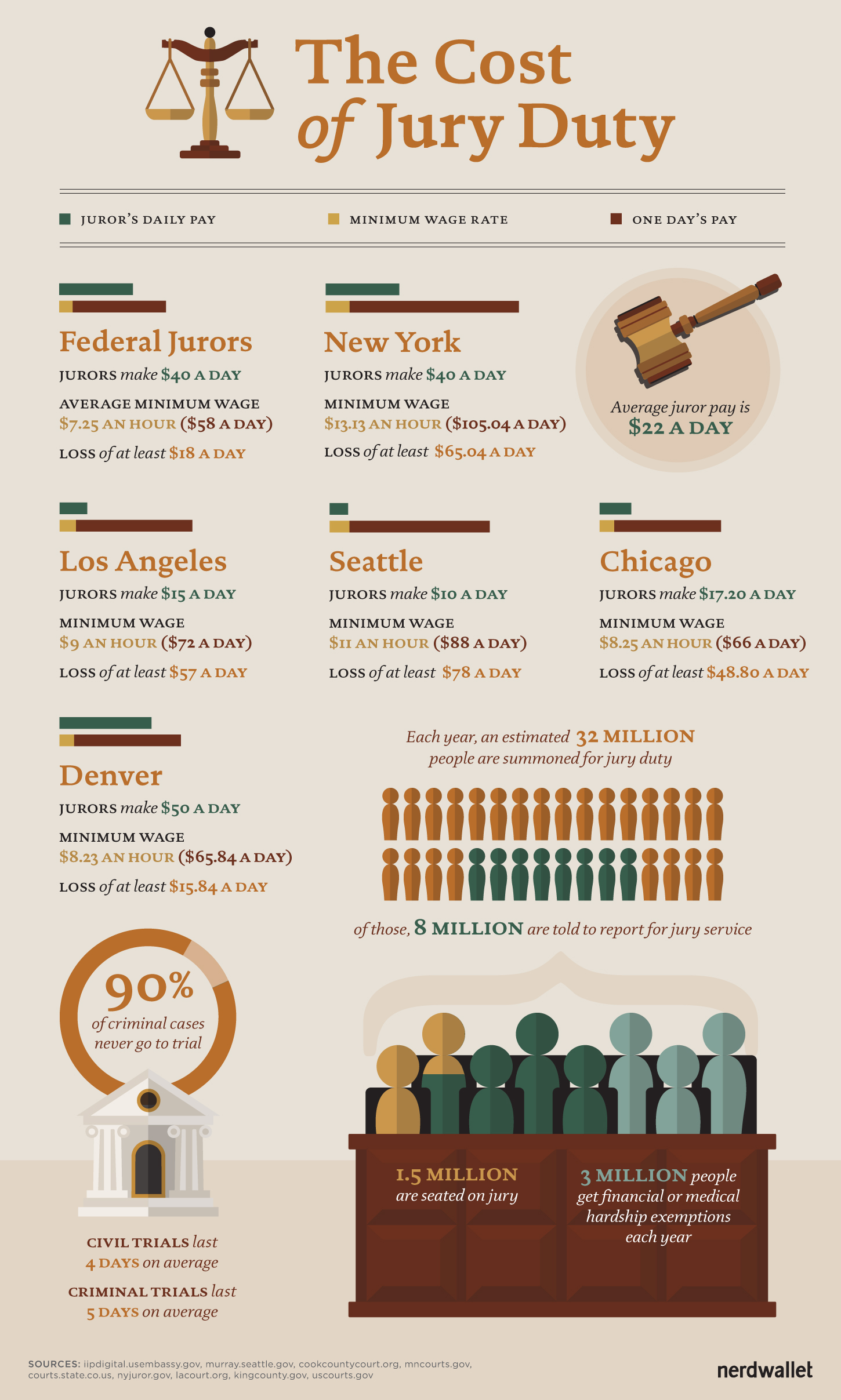The Cost of Jury Duty
In Dallas County, petit jurors are paid $6 for their first day of jury service. Grand jurors are paid a whopping $10. If a trial lasts multiple days, jurors are paid $40 for each subsequent day of jury service. Texas’ minimum wage is $7.25 an hour, which means that despite the fact that employers cannot fire their employees for missing work to attend jury duty, all non-salaried employees will take a financial loss to fulfill their civic duty. Privilege has made some observers of the justice system blind to this problem. One journalist proposed, “[f]or salaried professionals, jury duty is a paid vacation. What’s not to like?”
For the self-employed, unemployed, and non-salaried employees, there is plenty not to like. In 2009, economic hardship jury excuses skyrocketed. Potential jurors who had recently lost their jobs or ones whose employers could no longer afford to pay them for their jury service expressed how serving on a jury might result in their inability to put food on the table.
But this is not a new problem. One potential juror in the Oklahoma City bombing trial told the judge that he would not be able to make ends meet if he was chosen to be on the jury. Even though the state would pay him $200 a week, he would spend nearly that much for childcare alone, and his employer refused to pay his salary after four days of jury service. Those four days of pay would hardly make a dent when the trial was anticipated to last months. Other jurors said that they would have to make sacrifices such as moving in with their parents, asking their neighbors to care for their children, or working side jobs at night in order to cope with the heavy financial burden that months of jury service would impose.
The problem with this financial load is two-fold. First, it places an incredible burden on the citizens we ask to serve as jurors – increasing the unpopularity of jury duty and creating ambivalence towards the system. Second, it makes it disproportionately difficult for citizens of low socio-economic status to serve as jurors – a problem exacerbated by the difficulty of sending jury summonses to this same demographic. A professor at Harvard University called the financial burden dilemma the “single biggest impediment remaining to recruiting jurors from a cross section of the community.”
Varying Outlooks
For many, the solution to this problem seems simple – pay jurors better. However, not everyone sees it this way. A former attorney explained that jury duty is not a job, it is not employment, it is a civic obligation and a privilege. He opined that jurors should not be paid because they are not doing “anything remotely like work.” The problem with this outlook, of course, is that citizens cannot both work a typical, fully-paying job and simultaneously fulfill their civic duty of jury service. Apathy towards the financial burden that jury service places on citizens is not the solution. Simple actions such as providing free transportation and allowing jurors to call in rather than showing up if they might not be needed are necessary first steps in lightening the load on the jurors who keep our justice system alive.


No comments:
Post a Comment